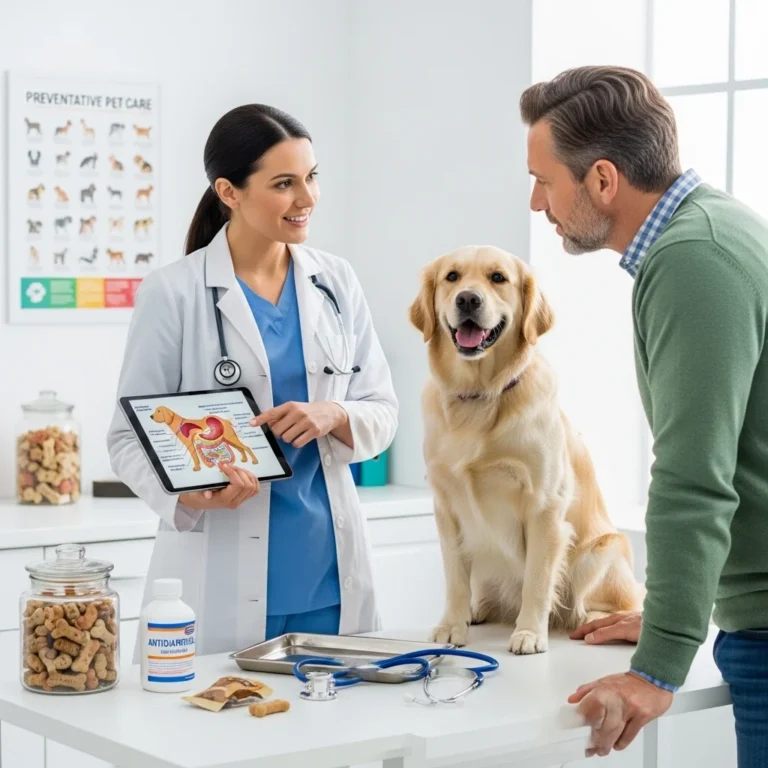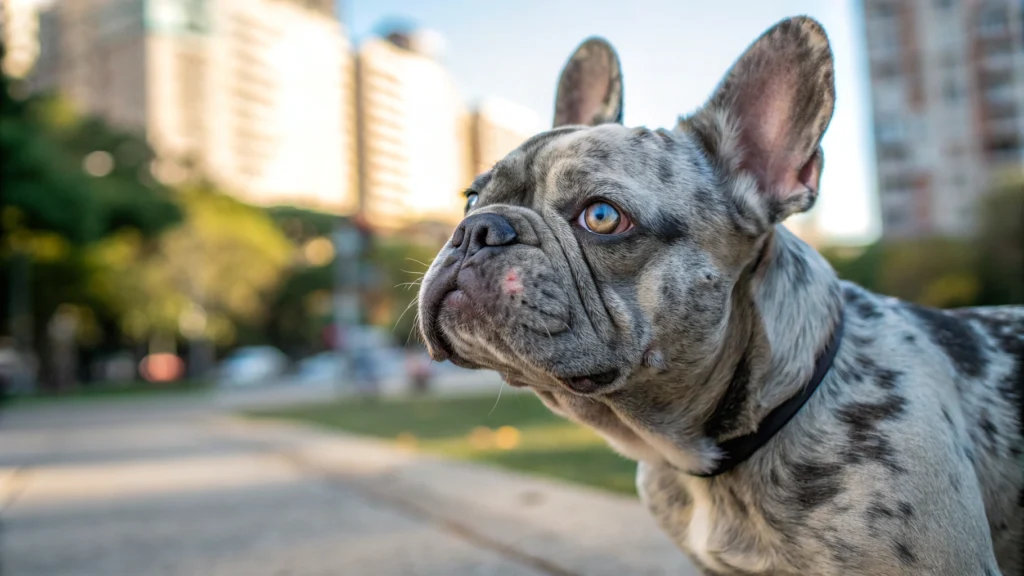
Introduction
Hey, friend! So, your pup’s got the runs, huh? Dog diarrhea is like that uninvited guest at a barbecue—nobody wants it, but it shows up anyway. It’s super common, but it can freak you out when your furry buddy’s leaving puddles instead of, well, you know, solid presents. It could be from scarfing down something weird or a sneaky bug messing with their tummy. Let’s chat about what’s going on, how to spot it, and what you can do to help your doggo feel better without losing your cool.
Dog Diarrhea Identify
Okay, so how do you know it’s dog diarrhea? It’s not rocket science—just check the poop! If it’s mushy, watery, or looks like a melted chocolate bar (gross, I know), you’ve got a problem. Your dog might be sprinting to the backyard every five minutes, straining like they’re auditioning for a doggy yoga class. The smell? Oh boy, it’s like a stink bomb went off. You might notice weird colors—pale, dark, or just off. Your pup could seem tired, mopey, or even feverish. If they’re acting like they lost their favorite toy, keep an eye out. Dog diarrhea’s a signal something’s up, so don’t ignore it.
What is the Most Common Cause of Diarrhea in Dogs?
Alright, let’s dish on why your dog’s got the squirts. Top culprit? They probably ate something they shouldn’t have—like that mystery taco from the trash (classic move). Switching foods too fast can also mess with their gut. Parasites like worms or creepy crawlies like giardia love causing chaos. Stress can turn their tummy into a rollercoaster too—think boarding or a new pet in the house. Even meds like antibiotics can throw things out of whack. Dog diarrhea’s usually from something simple, but it’s like a detective game to figure it out.
Will Dog Diarrhea Resolve Itself?
Good news: mild dog diarrhea often sorts itself out in a day or two. Your dog’s gut is tougher than my attempt at a 5K. Keep them hydrated and let them chill, and they might bounce back. But if it’s dragging on past 48 hours, don’t play the waiting game. Puppies and old dogs aren’t great at handling this, so watch them close. If it’s just a one-off from too many treats, it’ll probably pass, but don’t let it slide too long.
Should I Withhold Food if My Dog Has Diarrhea?
So, your dog’s got dog diarrhea—should you take away the food bowl? Yup, give their tummy a break for 12-24 hours. It’s like a mini-vacation for their gut.
Dog Diarrhea What to Feed?
After break for 12-24 hours, ease them back with super plain stuff. Think boiled chicken and rice—doggy comfort food. A spoonful of canned pumpkin (not pie filling!) can firm things up. Probiotics are like a hug for their gut bacteria. Skip milk or fatty treats; their stomach’s already throwing a tantrum. Small portions at first, and make sure they’re sipping water or electrolyte drinks. Dog diarrhea hates a calm, bland diet.
Dog Diarrhea Home Remedy
Wanna play doggy nurse at home? Try some bone broth—it’s like chicken soup for pups, super hydrating. A bit of slippery elm powder can soothe their insides like a cozy blanket. Kefir or yogurt with live cultures? Total gut heroes. A splash of chamomile tea (cooled, duh) can calm the cramps. Even a tiny bit of ginger can help with nausea. These tricks can work wonders for dog diarrhea, but don’t go wild—check with your vet first.
Dog Diarrhea Treatment
When home fixes aren’t cutting it, the vet’s your next stop. They might hook your pup up with fluids if they’re super dehydrated. Got worms? They’ll zap those with meds. Bacteria causing the dog diarrhea? Antibiotics to the rescue. Special diets might be prescribed for sensitive tummies. Vets know their stuff, so follow their lead and keep an eye on your dog’s progress.
What Do You Give a Dog to Stop Diarrhea?
Need a quick fix for dog-diarrhea? Stuff like kaolin-pectin can firm things up. Pepto-Bismol (dog-safe doses only) coats their tummy. Probiotics are like tiny gut cheerleaders. Fiber supplements can add some bulk. Vet-prescribed meds like metronidazole might be needed for serious cases. But hold up—always talk to your vet before playing pharmacist.
When is Dog Diarrhea an Emergency?
Okay, Blood gushing in the poop? Vet, now. Non-stop Dog diarrhea and vomiting or collapsing, If your pup’s acting like a couch potato, not eating, or running a fever, that’s trouble. Bloated belly or constant straining?? Emergency mode. Whining in pain or acting confused? Run, don’t walk. Puppies dehydrate crazy fast, and stuff like parvovirus is no joke. If you suspect they ate something bad, don’t wait. Dog-diarrhea like this is a 911 call for your furry friend.
Dog Diarrhea Watery Brown
Brown, watery dog diarrhea? Probably something they ate or stress messing with their system. It’s like their gut’s moving too fast to process properly. Keep an eye on it—if it doesn’t stop, get a vet to check for sneaky bugs causing the chaos.
Dog Diarrhea with Mucus
Mucus in dog-diarrhea looks like slimy jelly and usually means their colon’s ticked off. Could be worms, stress, or something like colitis. It’s not always a disaster, but if it’s a lot, the vet might need to take a peek inside. A few meds can usually calm this down.
Can Overfeeding Cause Diarrhea in Dogs?
Oh yeah, feeding your dog like it’s an all-you-can-eat buffet can totally cause dog-diarrhea. Too much food overwhelms their tummy, turning it into a watery mess. Puppies are especially bad at saying no to extra kibble. Ease up on the portions, and you’ll likely see things settle down.
How Long Does It Take for Dog Poop to Return to Normal After Diarrhea?
After dog-diarrhea, your pup’s poop should get back to normal in about 3-7 days. Bland food and probiotics speed things up like nobody’s business. Keep them hydrated, and older dogs might take a bit longer. If it’s dragging on, check with the vet to make sure nothing’s lingering.
Bloody Dog Diarrhea
Blood in dog diarrhea is a big red flag. Bright red means it’s from the lower gut; dark, tarry stuff could be from higher up. It might be a bad infection, parasites, or even meds causing ulcers. Don’t wait around—get to the vet fast to sort this out.
Yellow Dog Diarrhea
Yellow dog diarrhea looks weird, right? It’s usually from too much bile, maybe from liver issues or parasites like giardia. Their gut might not be digesting fats properly. A vet can run tests to figure out what’s up and get your pup back to normal.
you may like it




sources
https://www.petmd.com/dog/conditions/digestive/c_dg_diarrhea_acutehttps://vcahospitals.com/know-your-pet/diarrhea-in-dogshttps://www.akc.org/expert-advice/health/dog-diarrhea-causes-treatment/https://www.webmd.com/pets/dogs/what-to-know-about-dog-diarrhea


